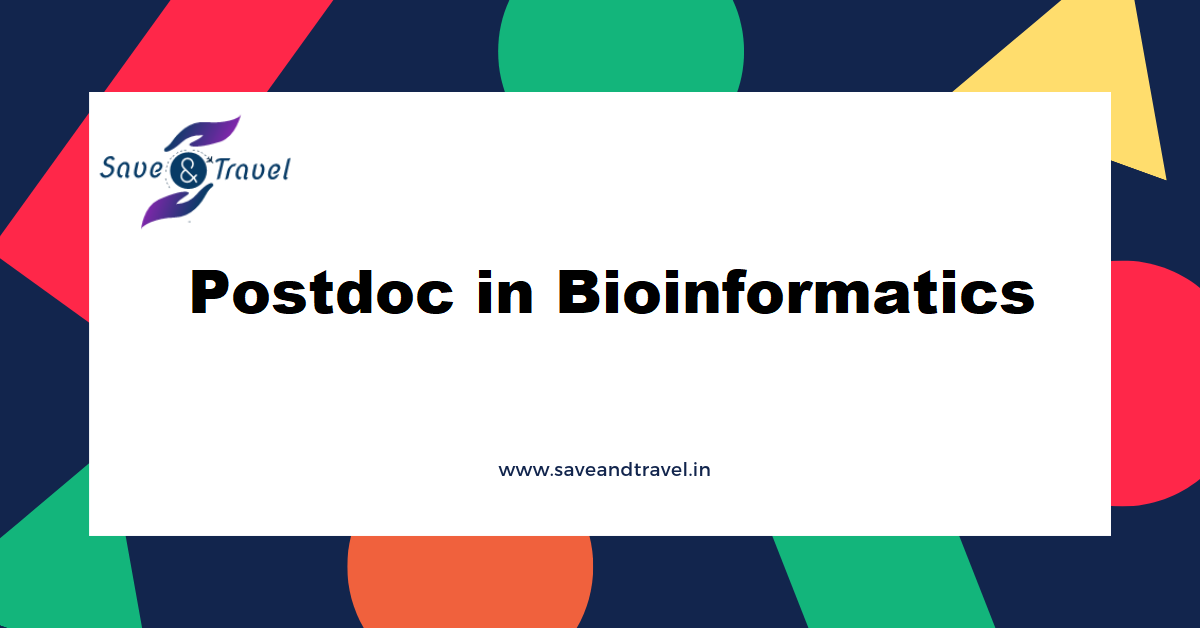PhD in Bioinformatics
Join our facebook group to get more scholarship updates – Scholarships & Fellowships – Bachelors, Masters, PhD and Postdoc
If you want to get updates on WhatsApp – Join here https://chat.whatsapp.com/EJYCCbxZ5PS3FUbHf4hqyG
DTU Department of Health Technology | Denmark
About the post
The course will cover the most commonly used algorithms in bioinformatics. Emphasis will be on the precise mathematical implementation of the algorithms in terms of functional computer programs. During the course, biological problems will be introduced and analyzed with the purpose of highlighting the strengths and weaknesses of the different algorithms. The following topics will be covered: Dynamic programming: Needleman-Wunsch, Smith-Waterman, and alignment heuristics Data redundancy and homology reduction: Hobohm and other clustering algorithms Weight matrices: Sequence weighting, pseudo count correction for low counts, Gibbs sampling, and Psi-Blast Hidden Markov Models: Model construction, Viterbi decoding, posterior decoding, and Baum-Welsh HMM learning Artificial neural networks: Architectures and sequence encoding, feed-forward algorithm, back propagation and deep neural networks The course will consist of lectures, discussion sessions and computer exercises, where the students will be introduced to the different algorithms, their implementation and use in analyzing biological problems. In the end of the course, the student will work on a group project were one or more of the algorithms introduced in the course are applied to analyze a biological problem of interest. The project report shall be written as a research paper including an in-depth review of the field covered by the project.
Deadline: Check link
Stockholm University | Sweden
About the post
Your PhD studies will be in the Biochemistry especially Bioinformatics program, specifically within the project: Use of deep learning to predict protein structures.
Deep learning is a branch of machine learning based on a set of algorithms that attempt to model high-level abstractions in data by using model architectures, with complex structures or otherwise, composed of multiple non-linear transformations. The use of deep learning have revolutionised the machine learning community, but so far has only been used in a few biological applications.
In this project we aim to use deep-learning method to predict various aspects of protein structure prediction, including (but not limited to) model quality assessment, contact predictions and secondary structure prediction. For an overview of our work, go to bioinfo.se/papers .
A general interest in protein, programming and machine learning methods and a solid background in bioinformatics, physics or computer science is suitable for this position.
Deadline: 24/09/2019
Université Laval | Canada
About the post
The project will take place in the Department of food science at Laval University in Quebec City and start in September 2019 or January 2020.
In addition to working in the laboratory with an automated platform, the student will have the opportunity to develop analytical and bioinformatics skills. A strong background in microbiology, biology or bioinformatics is necessary.
If you are interested in such a project, send your CV, grade reports and a short letter of motivation to Marie Filteau (Marie.filteau@fsaa.ulaval.ca).
Deadline: 26/09/2019
Erasmus MC (University Medical Center Rotterdam) | Netherlands
About the post
The successful candidate preferentially has a background in Cancer Biology, Biotechnology, Systems Biology and/or Bioinformatics. The candidate will interact with a diverse group of faculty in optics, bioengineering, biomedical and cell biology, and will be able to collaborate with leading laboratories at Erasmus MC, The CancerGenomiCs.nl consortium, The Oncode Institute and Delft University of Technology.
ETH | Switzerland
About the post
We are looking for an enthusiastic and highly-motivated candidate to work on the compilation of a haplotype reference panel for a Swiss cattle breed. The candidate will analyse and combine short- and long-read sequencing data from hundreds of cattle to create a library of haplotypes that segregate in the population. Genome graph-based approaches will be developed and applied in order to improve the genotyping of sequence variants beyond SNPs and Indels. The availability of long-read sequencing data also offers the opportunity to contribute to ongoing endeavors with regard to the de novo assembly of breed-specific reference genomes. This is a fixed term position for 4 years with an anticipated start date of January 1st, 2020 (negotiable). The position is based at ETH Zurich, Switzerland. The successful candidate will join the Animal Genomics group led by Hubert Pausch.
Ghent University | Belgium
About the post
The goal of the research project is to design a bacterial cocktail that protects piglets against E. coli associated post-weaning diarrhoea. Post-weaning diarrhoea is an economically important disease that is mainly caused by enterotoxigenic E. coli (ETEC). Additionally change from high digestible milk to less digestible dry feed, an impaired gut microbiota and poor immune status of the piglets might render them more susceptible to ETEC infection. In this project the piglet’s microbiome and its relation to host genetics and immune function will be assessed, leading to insights on the host-microbiome interaction and the potential predisposition to develop post-weaning diarrhoea. The identified beneficial bacterial taxa will be enriched using anaerobic fermentation after which an in vivo E. coli challenge model will be used to test the protective effect of the bacterial cocktail. This research project offers a unique combination of wet lab and dry lab work, ranging from on farm sampling, in vitro work with anaerobic bacteria, NGS sequencing and implementation of bioinformatics tools.
Charité – Universitätsmedizin Berlin, Humboldt University Berlin, Max Delbrueck Center for Molecular Medicine, Berlin | Berlin, Berlin
About the post
We are looking for 7 PhD students and 3 Postdoctoral researchers to complete the teams of our newly funded DFG-Research Unit Beyond the exome, which aims to identify, analyze, and predict the disease potential of non-coding DNA variants in patients with rare genetic diseases.
Our research is centred around the question, of how non-coding regulatory mutations and structural variants in the human genome cause disease. For that we have put together a team of 12 Principal Investigators from such diverse fields as Clinical Medicine, Genetics, Biophysics, Cell and Molecular Biology, Bioinformatics, and Machine Learning.
Our research is shared between three different Institutions at Berlin that are the Charite University Hospital, the Humboldt University, and the Max Delbrueck Center (MDC) for Molecular Medicine.
The formal PhD training of our PhD students will be associated with the training program of the Berlin-Duke International Research Training group Dissecting and Re-engineering the Regulatory Genome (IRTG 2403) at Humboldt University Berlin and the Max Delbrueck Center for Molecular Medicine (https://www.regulatory-genome.org/ )
Deadline: Check link
More PhD Positions
Keywords: phd in bioinformatics in india, phd in bioinformatics in delhi, part time phd in bioinformatics in india, phd in bioinformatics eligibility, phd in bioinformatics in iit, phd in bioinformatics salary, phd in bioinformatics in germany 2020, phd bioinformatics admission 2020








